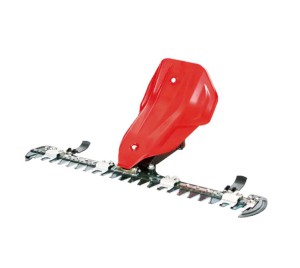A quiet revolution pulses through global manufacturing networks as PP Straw production evolves into a self-sustaining ecological engine. Gone are the days of linear consumption—advanced bioremediation facilities now breathe new life into discarded polymers through enzyme-driven molecular metamorphosis. Within climate-controlled reaction chambers modeled after termite mound architectures, post-consumer straws undergo atomic-level restructuring. CRISPR-optimized microbial consortia disassemble polypropylene chains with surgical precision, their metabolic pathways fine-tuned to reconstruct food-grade polymers in 14-day cycles. This biological alchemy preserves material integrity across infinite loops, transforming urban waste streams into eternal resource pools that bypass traditional extraction industries.
The implications ripple through disaster response ecosystems where military engineers deploy bioactive PP Straw variants imbued with self-preserving intelligence. These adaptive conduits maintain sterile water supplies in tropical conflict zones through nanocellulose filters that expand pore structures during monsoon floods and contract in droughts. Embedded probiotic colonies silently combat pathogens while releasing soil-enhancing microorganisms over 18-month lifespans—a dual-purpose design that sustains human survival while rehabilitating battle-scarred landscapes. Polar adaptations reveal frost-resilient iterations where diatomaceous earth matrices activate insulating nanocrystals at -30°C, protecting liquid supplies during Arctic deployments before degrading into permafrost-stabilizing agents.

• $1.00
Pinned onto shopping






Related Pins

Gloss Black Monoblock Forged Wheels For Performance Car
https://www.wheels-factory.com/product/monoblock-forged-wheels/zhenlun-japanese-car-gloss-black-monoblock-forged-wheels-for-performance-car.html
The Zhenlun Japanese Car Gloss Black Monoblock For ...

150×150×50mm 6 Inch Seven Blade AC15050 AC Axial Fan
https://www.mx-fan.com/product/150x150mm-ac-axial-fan/150-150-50mm-6-inch-Seven-Blade-ac15050-ac-axial-fan.html
The 150×150×50mm 6 Inch Ball Bearing AC15050 AC Axial Fan is a high-performance coolin ...
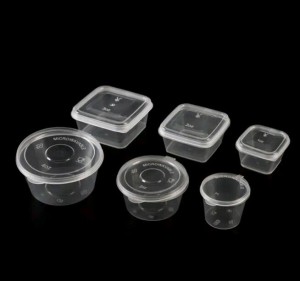
Disposable Plastic Integrated Sauce Cup Mold(1OZ-5OZ)
https://www.food-container-mold.com/product/sauce-cup-mould-series/integrated-sauce-cup-mold-1oz5oz.html
The Disposable Plastic Integrated Sauce Cup Mold (1OZ-5OZ) is a high-quality mold designed ...
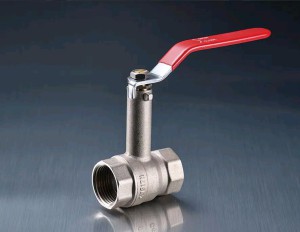
JL-B1069 BRASS BALL VALVE
https://www.gafo.cc/product/brass-ball-valve/
Medium temperature:-20C≤t≤110°C
Maximum working pressure : 2Mpa(20bar)
Working medium:water,non-corrosive liquid
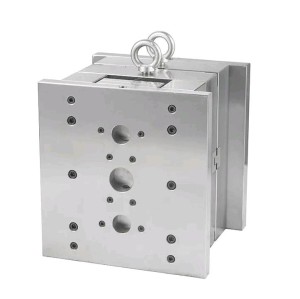
PA66 Material Automobile Buckle Mold
https://www.automobiletiemould.com/product/automobile-buckle-mold/fir-tree-type-standard-mold-base-pa66-material-automobile-buckle-mold.html
The automotive industry demands precision, durability, and efficiency in ...

S51100 S51107 S51109 Car Wheel Plain Thrust Ball Bearing
https://www.bearing-manufacturer.com/product/thrust-roller-bearings/s51100-s51107-s51109-car-wheel-plain-thrust-ball-bearing.html
Model Number: S51100 S51107 S51109 SS51103
Size: Customized Siz ...
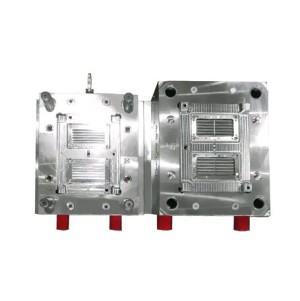
Ventilation Grille Molds
https://www.yiwei-mold.com/product/ventilation-mold/ventilation-grille-molds.html
Ventilation grille molds are specialized molds used for manufacturing ventilation grilles. These molds play a crucial role in the production of ...

PVC Foam Board
https://www.zhongshengnewmaterial.com/product/panels-board/pet-film-with-pvc-foam-board.html
Product name: PET film with PVC FOAM BOARD
Brand name: SKY
Product Size:
Standard size: 1220*2440mm or customize
Thickness: 3mm to 30mm or cu ...

High Torque 21V Screwdriver Suitable For Various Jobs
Voltage 21V(Li-ion)
Rated Frequency 50-60HZ
No-load speed
0-2800r/min
Max.Torque 300NM
Other Feature Forward/reverse, variable speed
and electric brake
Battery capacity indicator 3000MA
LED work ...
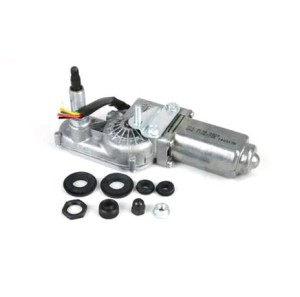
15010653 Wiper Motor
https://www.juntmotor.com/product/wiper-motor/15010653-wiper-motor.html
The windshield wiper motor needs to withstand various weather conditions, including high temperatures, low temperatures, and humidity, and therefore requires ...

BMW 4 Series Modified BMW M4 Mold Bumper Mould
https://www.bumpermould.net/product/modified-bumper-mould/bmw-4-series-modified-bmw-m4-mold-bumper-mould.html
Performance: Our bumper molds consistently deliver higher precision and quality in the molded ...
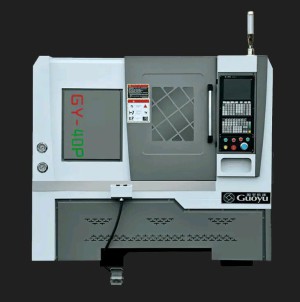
Flat Rail Precision CNC Lathe
https://www.zjgycnc.com/product/cnc-instrument-lathe/flat-rail-precision-cnc-lathe.html
40P is a kind of small precision machine tool, that is suitable for the efficient machining of high precision and complex rotating pa ...
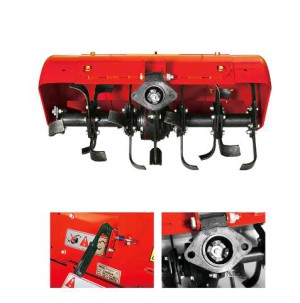
MODEL: HYRRT01
Working Width: 65/80/100cm ( 25″,32″,40″)
Working Depth: 20-25cm
Application
Dig dirt, build soil bust sod, prepare seed beds, precision cultivate, power compost Suitable for hard soil.
https://www.tillerfactory.com/p ...

2200w 2 Steaming Stettings Double Cylinders Stand Fabric Steamer
https://www.cnxiyunlai.com/product/garment-steamer/2200w-2-steaming-stettings-double-cylinders-stand-fabric-steamer.html
1. Voltage: 220-240V, suitable for many countries and regions of ...
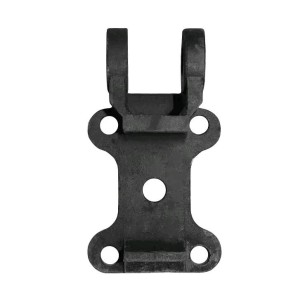
Top Opening Casting Parts With Round Hole
https://www.chinahzjx.com/product/casting-parts/
Top opening casting parts with round holes are components typically produced using the casting process, where molten material (usually metal) is poured into a m ...

Leather Front and Rear Seat Covers
https://www.xlycaraccessories.com/product/car-seat-cushion-set/car-seat-covers-breathable-fabric-and-nappa-leather-front-and-rear-seat-covers.html
Model: A-8
Material: Nappa lether
Color: Black gray1, red black, blac ...

MINI BRASS PADLOCK
https://www.keeperlock.com/product/brass-padlock/bm100p-diamondshaped-brass-lock-beam-small-brass-lock.html
ART. NO. SIZE
BM315 15mm
BM320 20mm
BM325 25mm

LOUIS VUITTON(ルイ・ヴィトン)のモノグラム柄キルティングテクニカルダウンコートは、おしゃれで人気の秋冬アウターとして注目を集めています。このフード付きのダウンコートは、大きいサイズも揃えられており、洗練されたルイ・ヴィトンのスタイルを体現しています。 ...

MONCLER MAYAのピンクフード付きショート丈ダウンジャケットは、トレンドカラーのピンクが華やかさと女性らしさを演出します。フード付きで暖かさを保ちながら、ショート丈のデザインがスタイリッシュな印象を与えます。モンクレールの品質とスタイルが詰まった、秋冬の ...

MONCLER(モンクレール)のメンズ向けショートダウンジャケット「DERVOX(ダーヴォクス)」は、クラシックなデザインにモダンな要素を取り入れた人気モデルです。光沢のあるナイロン素材と、特徴的なバイカラーのディテールが特徴です。
https://www.coolkaba.com/produc ...

モンクレール(MONCLER)のCHIABLESEは、男性向けの人気アイテムです。このホワイトのショートダウンジャケットは、撥水性のあるナイロン素材で作られており、ブランドの高い品質とスタイリッシュなデザインが特徴です。ホワイトの色合いが清潔感と洗練された印象を与え ...

Louis Vuitton ルイヴィトン ダウンジャケット&コートスーパーコピーN级品激安通販大集结!最新から定番人気アイテム、国内入手困難なレアアイテムも手に入るかも。送料無料,信用口コミ、税関対策も万全です!
https://www.coolkaba.com/brand-lv-sortdesc-2-1.html
...

モンクレールの定番メンズダウンジャケットであるMAYA(マヤ)のネイビーブルーは、モンクレール公式ストアをはじめ、様々なオンライン・オフラインの(coolkaba)販売店で入手可能です。ショート丈でスタイリッシュなデザインは、秋冬のカジュアルな装いに最適です。
http ...
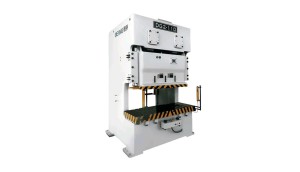
Double Crankshaft Precision Steel Frame Punching Machine
https://www.zjdfjx.cn/product/stamping-press-machinery/dg2110t-hyperbolic-axis-open-high-precision-strong-steel-frame-punching-machine.html
Structural Design
1. Double Crankshaft Mechanism: The ...

4 Inch DC12038 DC Axial Fan
https://www.mx-fan.com/product/120x120mm-dc-axial-fan/120-120-38mm-4-inch-dc12038-dc-axial-fan.html
The 120×120×38mm 4 Inch Ball Sleeve DC12038 DC Axial Fan offers larger dimensions, enabling it to deliver even higher airf ...

Disposable PS Knife, Fork, and Spoon Mold
https://www.food-container-mold.com/product/disposable-plastic-knife-fork-and-spoon-mould-series/ps-knife-fork-and-spoon-mold-series.html
The Disposable Disposable PS Knife, Fork, and Spoon Mold Series exempl ...
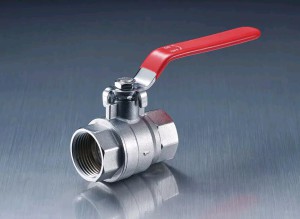
JL-B1063 BRASS BALL VALVE
https://www.gafo.cc/product/brass-ball-valve/
Brass Ball Valves represent a pinnacle of engineering ingenuity, meticulously designed to facilitate seamless fluid control in diverse applications. Renowned for their robust con ...
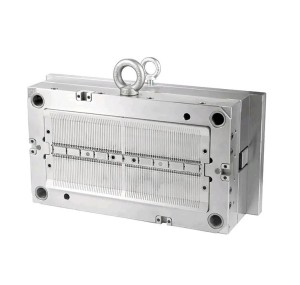
Ordinary Bent Tail Tie Nylon Cable Tie Mold
https://www.automobiletiemould.com/product/nylon-cable-tie-mold/mold-core-material-skd61-custom-frame-mold-ordinary-bent-tail-tie-nylon-cable-tie.html
Mould life time 2 million times Mirror discharge finish ...
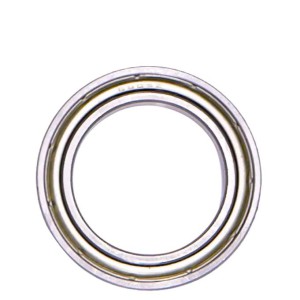
6810Z 6809Z 6807Z 6805Z Thin Wall Deep Groove Ball Bearing
https://www.bearing-manufacturer.com/product/deep-groove-ball-bearing/6810z-6809z-6807z-6805z-thin-wall-deep-groove-ball-bearing.html
Model Number: 6810Z 6809Z 6807Z 6805Z
Bore Size: 10 – ...
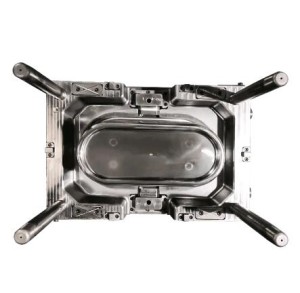
Basin Molds
https://www.yiwei-mold.com/product/daily-storage-mold/basin-molds.html
Basin molds are key tools used to produce basins or sinks, which can be of various types and sizes for home kitchens, bathrooms, or commercial premises. These molds are ...

CG-2025 Cordless High Power 12V Brushless Drill
https://www.cordless-drill.net/product/12v-brushed-cordless-drill/cg2025-cordless-high-power-12v-brushless-drill.html
The CG-2025 Cordless High Power 12V Brushless Drill is engineered for users who requi ...
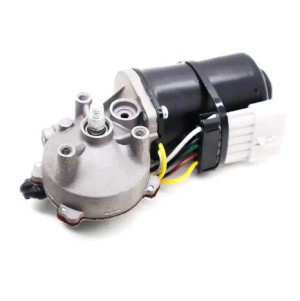
Condition New
Purpose For replace/repair
Model Number ZDW1333
Motor Brush
Voltage 24V
Warranty 1 Year
Product Name Wiper motor
Material Copper-iron-aluminum
OEM 91498-386
Power 50W
Voltage 12/24V
Application Wiper Motor System
https://www.juntmotor.co ...
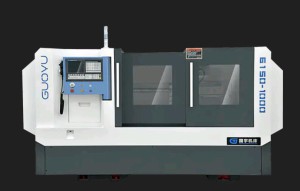
Hardness Linear Rail Flat Bed CNC Lathe
https://www.zjgycnc.com/product/flatbed-cnc-lathe/gsk-system-high-hardness-linear-rail-flat-bed-cnc-lathe.html
The bed is treated by sticking plastic technology, which can move easily, reduce the abrasion of the ...

MODEL: HYCS02
Power: 15HP Gasoline Engine
Sgreddubf type: Rotor type
Cutting Diameter: 8-12cm
Shredding Diameter: 1-3cm
https://www.tillerfactory.com/product/chipper-shredders/chipper-shredder-hycs02.html

Heavy Duty Vertical Garment Steamer
https://www.cnxiyunlai.com/product/garment-steamer/2000w-4-steaming-stettings-heavy-duty-vertical-garment-steamer.html
Product advantages:
1. Efficient wrinkle removal: Due to the powerful power of 2000W and a varie ...

RHOMBUS BODY BRASS PADLOCK
https://www.keeperlock.com/product/brass-padlock/bb500-diamondshaped-straightopening-brass-padlock.html
ART. NO.
SIZE
BB530
30mm
BB540
40mm
BB550
50mm
BB560
60mm

Top transparent straw hat spring and summer new bow decoration beach hat
https://www.zjkaijiacrafts.com/product/straw-knitted-hat-without-top-1/top-transparent-straw-hat-spring-and-summer-new-bow-decoration-beach-hat-woven-female-korean-version-of-the ...

Sie möchten Ihnen endlich einen höhenverstellbaren Schreibtisch gönnen? Eine gute Idee. Denn an einem Stehschreibtisch arbeitet und telefoniert es sich gleich leichter. Zwischendrin aufstehen, Sie bewegen und auf den Zehen wippen – mit einem höh ...
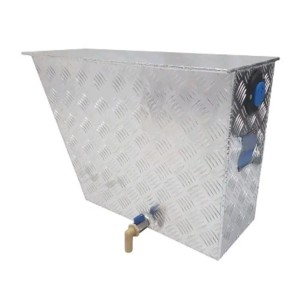
600 x 200 x 400mm Aluminium 20L Ute Camping Under Tray Body Box
https://www.hofastindustries.com/product/ute-under-tray-boxes/600-x-200-x-400mm-aluminium-20l-ute-camping-under-tray-body-box-storage-water-tank.html
Thickness: 4mm Checker Plate
Capacity ...

3.5 Inch EC9225 EC Axial Fan
https://www.mx-fan.com/product/92x92mm-ec-axial-fan/92-92-25mm-3-5-inch-ec9225-ec-axial-fan.html
The EC9225 fan is powered by an electronically commutated (EC) motor, which provides several benefits. EC motors are known fo ...

Disposable Plastic Split-type Sauce Cup Mold
https://www.food-container-mold.com/product/sauce-cup-mould-series/splittype-sauce-cup-mold.html
Disposable Plastic Split-type Sauce Cup Mold, integral to our mold product lineup, serves as a cornerstone in ...

JL-B2018 BRASS BIBCOCK
Medium temperature:-20C≤t≤100°C
Maximum working pressure : 1Mpa(10bar)
Working medium:water,non-corrosive liquid
https://www.gafo.cc/product/brass-bibcock/

Automobile Male And Female Butt Connector
https://www.automobiletiemould.com/product/automotive-connector-mold/plastic-shell-terminal-computer-wiring-harness-board-automobile-male-and-female-butt-connector.html
Precision of the whole mold can reach 0. ...
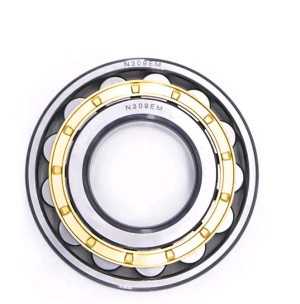
Our Bearing Adapter Sleeves, compatible with bearing numbers NJ2216EM, NJ2311EM, N309EM, and RN219M, are forged from high-quality-grade bearing steel, ensuring durability and reliability in demanding applications. These sleeves serve as essential comp ...

Monoblock Forged Rims Wheels For Benz
https://www.wheels-factory.com/product/monoblock-forged-wheels/zhenlun-5-spokes-split-monoblock-forged-rims-wheels-for-benz.html
The Zhenlun 5 Spokes Split Monoblock Forged Rims for Benz are premium wheels designe ...
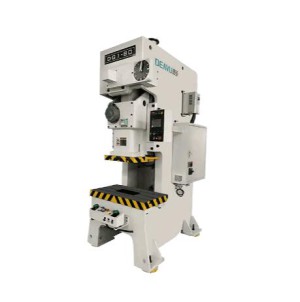
· High-rigidity frame design, welded with high-quality steel plates, and processed through internal stress elimination process to improve the accuracy, stability and reliability of the entire machine.
· The machine uses high alloy steel, single axis, ...

4-Inch Brushed Small Logging Saw Electric Chain Saw
https://www.cordless-drill.net/product/21v-brushed-cordless-chain-saw/4inch-brushed-small-logging-saw-electric-chain-saw.html
The 4-inch Brushed Small Logging Saw Electric Chain Saw is a compact yet ...

80mm single function classical showerhead
https://www.zyshowers.com/product/showerheads/
Model: S12
Function: Spray Chrome
Certificate: WaterMark

